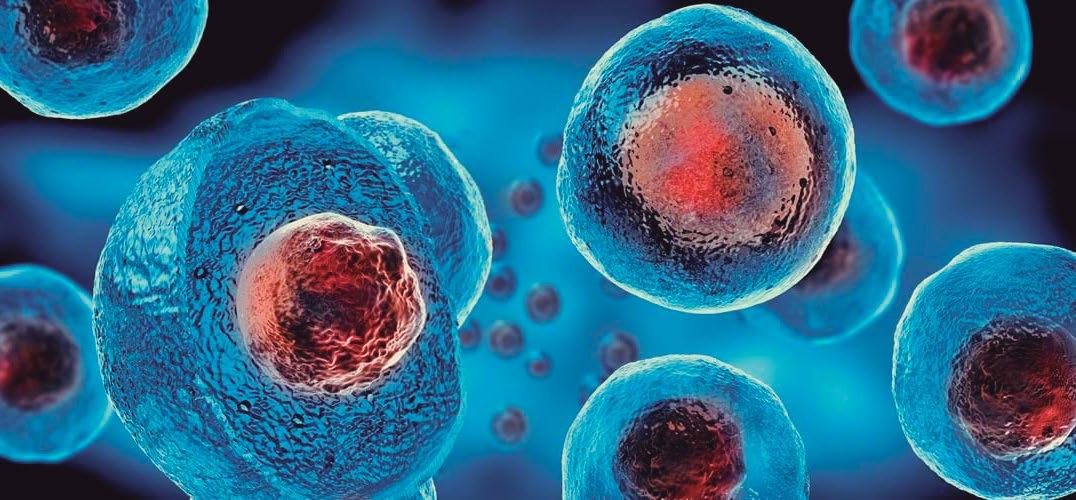
5 minute read
A PHARMACEUTICAL WARNING: RICHARD J. ROBERTS
A PHARMACEUTICAL WARNING: RICHARD J. ROBERTS
Health and illness: two opposing concepts that exist in parallel. These are the very concepts with which medicine works, the latter being studied so that the former prevails. In times like the present, when a deadly virus has slipped into our lives, the health sector is mobilized. People take care of themselves, they try to avoid exposing themselves, but none of this is of any use if a cure cannot be developed. This is where researchers in the field assume a central role. In order to find a cure, we must first understand the processes of the human body and the essence of the disease itself; then how it evolves within the body, which will lead us to understand how to prevent it and eventually how to cure it. Finding an effective treatment for the virus has become the holy grail.
Advertisement
The COVID-19 pandemic has brought us to a crisis, and not only to a health crisis, but to economic and emotional ones as well: we are surrounded by fear and uncertainty in the face of the unknown. Almost a year after the virus began to spread, the doctors who risk their lives for others and the researchers working on a possible vaccine represent the light we hope to see at the end of the tunnel. The pharmaceutical industry is committed to creating and distributing a safe vaccine, in order to eliminate, once and for all, the death toll caused by COVID-19. Over the years, this industry has adapted to the changes in the world and has provided its services in the best possible way, modernizing itself and developing in order to offer high-quality products and medicines.
This may suggest that those engaged in the medical and pharmaceutical sciences have a more vital sense of solidarity than the rest of us, that their prevailing motivations are humanitarian. It is ironic, however, that human beings sometimes lack humanity. The capitalist system can affect the interests of different sectors: where once there was a genuine concern for others, now there is competition for monetary profits. A situation that makes us wonder: what happens when economic interests outweigh those of human health? Richard J. Roberts insists that the pharmaceutical industry has succumbed to the desires and interests of those seeking economic profit rather than health.
Richard John Roberts was born in Derby, England, in 1943. His parents, John and Edna Roberts, always encouraged him to follow what he was most passionate about: chemistry. He graduated
– Richard J. Roberts
in 1965 from the University of Sheffield. Beginning his doctoral studies, he had his first real contact with molecular biology, and this became the specialty he is embraced. He earned a place at Harvard for his postdoctoral studies (1969), where he continued the research undertaken by Tom Stewart, who guided him into the wide universe of the transfer RNA. On taking up Stewart’s research, Roberts decided that the method for sequencing RNA that he had been following was not ideal, so he chose to explore a new method in Fred Sanger’s laboratory at Cambridge. Following a short stint there in order to learn sequencing techniques, he returned to Harvard and achieved more successful results. The vicissitudes of life and the right contacts led him to his next job at Cold Spring Harbor in 1972.
From that moment on, Roberts’s career began to take shape, as he devoted himself to the research that would earn him the greatest distinction of his life. At Cold Spring Harbor, he undertook the task of DNA sequencing. He collaborated with Phyllis Myers, Richard Gelinas, Louise Chow, Tom Broker, and others, whose work was gradually leading them all to a great discovery. At the same time, similar studies were taking shape in another laboratory under the direction of Phillip Allen Sharp. Roberts would finally share credit with Sharp for establishing the discontinuous structure of genetic information: in other words, the discovery of split genes. Through their research they were able to disprove the notion that genes existed in long continuous fragments. This was so significant for science that they were jointly awarded the Nobel Prize in Physiology or Medicine in 1993. Following years of study, Richard J. Roberts has earned the respect of fellow researchers, and his curiosity led him to reveal knowledge that has proved revolutionary: discoveries as important as the development of cures for diseases that were formerly considered terminal. In recent years, the pharmaceutical industry has been focusing on research into chronic treatments, but it has been dragging its feet on research that would lead to potentially more significant findings: those that seek to cure, and not just to treat. This leads us back to our question: what happens when economic interests outweigh those of human health? We are well aware that the pharmaceutical sector is an industry, after all, and as such depends on economic profitability. But we cannot view it as just any other industry, since human lives are at stake.
Roberts’s claims makes us realize how health has become just another business. If a cure is found for cancer, then all the drugs so far developed would be rendered obsolete: all that would be needed is one cure per patient, as opposed to multiple treatments, which are prescribed over and over again. In the end, we can only wait and put our trust in those still struggling to ensure that the industry does not succumb to the desire for monetary gain. Let us hope that human beings remain the priority, and that we never lose sight of those who should be the true beneficiaries of the industry.

Tania Lucía Castro Díaz
is an undergraduate student in the Spanish literature program at the Universidad de Guadalajara. In 2018-2019 she gave workshops in reading and creative writing for the Luvina Joven program. She has worked in the publishing sector since 2019 and currently works as a French teacher.








